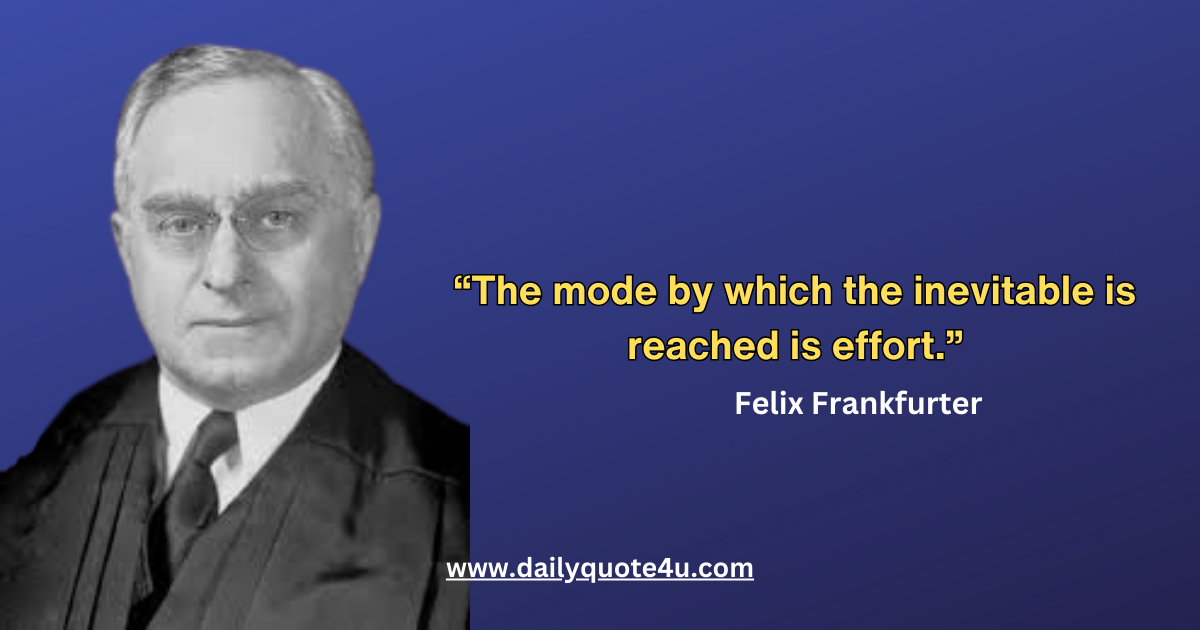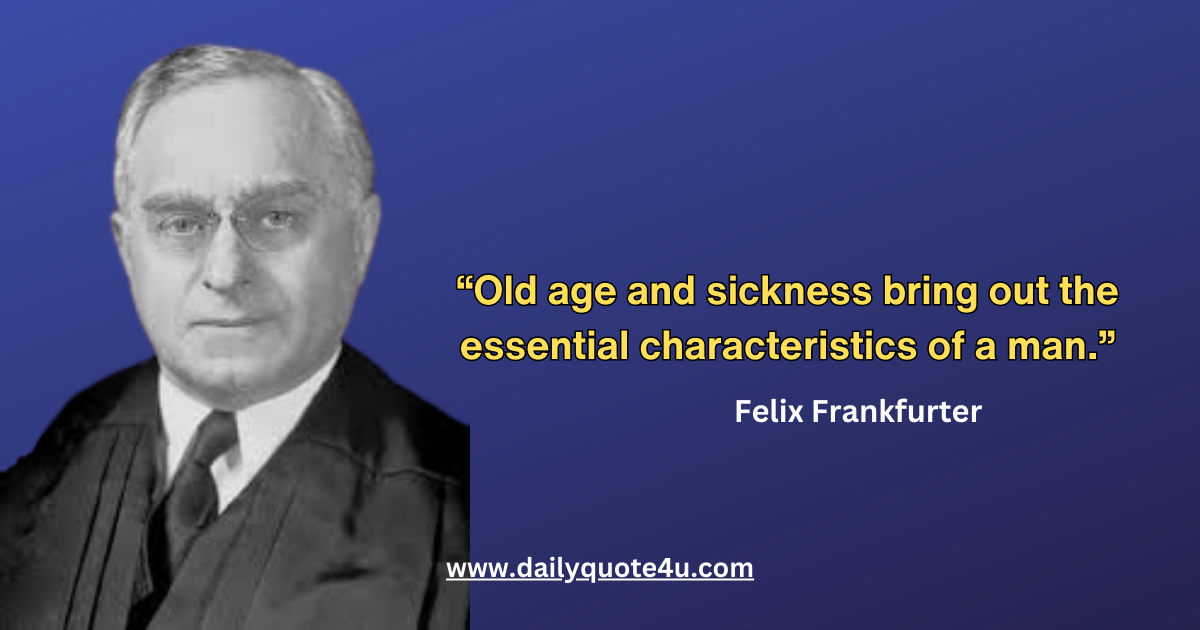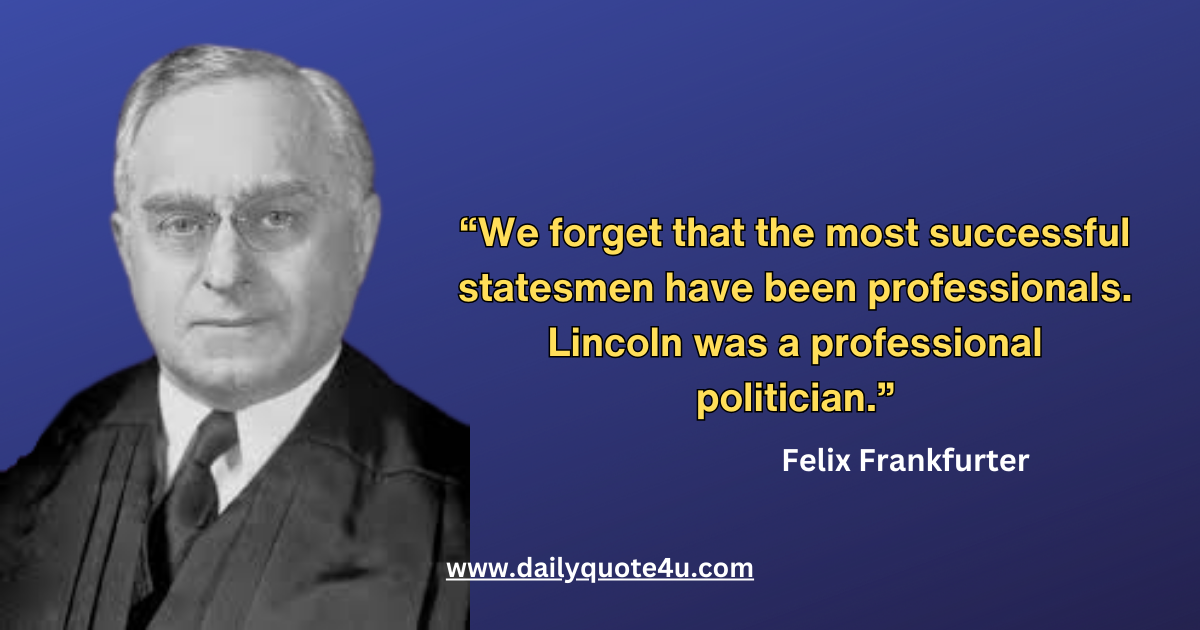The best wisdom quotes from Felix Frankfurter
Here are the best wisdom quotes from a great jurist, Mr.Felix Frankfurter.
Introduction:
Felix Frankfurter, a distinguished jurist and Associate Justice of the United States Supreme Court from 1939 to 1962, left an indelible mark on American jurisprudence. Beyond his influential legal decisions, Frankfurter’s insightful and thought-provoking quotes reflect his deep commitment to justice, democracy, and the rule of law.
In this article, we delve into the life and legacy of Felix Frankfurter through some of his most notable quotes.

-
“Wisdom too often never comes, and so one ought not to reject it merely because it comes late.”
This quote encapsulates Frankfurter’s belief in continuously pursuing knowledge and wisdom. As a legal scholar and jurist, he emphasized the importance of a lifelong commitment to learning. Frankfurter’s intellectual curiosity and dedication to the principles of justice shaped his career and impacted the American legal system.

All our work, our whole life, is a matter of semantics because words are the tools with which we work, the material out of which laws are made, out of which the Constitution was written. Everything depends on our understanding of them.
-
“In the last analysis, our only freedom is the freedom to discipline ourselves.”
Frankfurter recognized the delicate balance between individual freedom and societal order. This quote underscores the idea that true freedom requires self-discipline and responsibility. It reflects his belief that a just society relies on individuals willing to govern themselves within the bounds of the law.

The real rulers in Washington are invisible and exercise power from behind the scenes.
- “It is a wise man who said that there is no greater inequality than the equal treatment of unequal.”
Throughout his career, Frankfurter grappled with the complexities of equality and justice. This quote highlights his understanding that fairness doesn’t always mean treating everyone the same way. Rather, it requires a nuanced approach that considers individuals’ unique circumstances and needs.
It is a fair summary of history to say that the safeguards of liberty have been forged in controversies involving not very nice people.

To some lawyers, all facts are created equal.

The ultimate touchstone of constitutionality is the Constitution itself and not what we have said about it.

The mode by which the inevitable is reached is effort.

It is anomalous to hold that in order to convict a man, the police cannot extract by force what is in his mind but can extract what is in his stomach.
“The history of liberty has largely been the history of the observance of procedural safeguards.”
As a Supreme Court Justice, Frankfurter played a key role in shaping constitutional law. This quote reflects his emphasis on the importance of procedural safeguards in protecting individual liberties. Frankfurter believed that a just legal system required rigorous adherence to due process and fair procedures.

Old age and sickness bring out the essential characteristics of a man.
- “The safeguard of morality, as of democracy, is education.”
Frankfurter was a strong advocate for education as a cornerstone of both morality and democracy. This quote emphasizes his belief that an informed and educated citizenry is essential for the preservation of a just and democratic society. Education, according to Frankfurter, serves as a safeguard against injustice and the erosion of democratic values.

It simply is not true that war never settles anything.

Anybody can decide a question if only a single principle is in controversy.

We forget that the most successful statesmen have been professionals. Lincoln was a professional politician.

Answers are not obtained by putting the wrong question and thereby begging the real one.
Conclusion:
Felix Frankfurter’s legacy extends far beyond his time on the Supreme Court. His quotes offer valuable insights into his philosophy on justice, freedom, and the responsibilities of individuals within a democratic society. As we reflect on his words, we are reminded of the enduring wisdom of this legal luminary and the profound impact he had on American jurisprudence.














